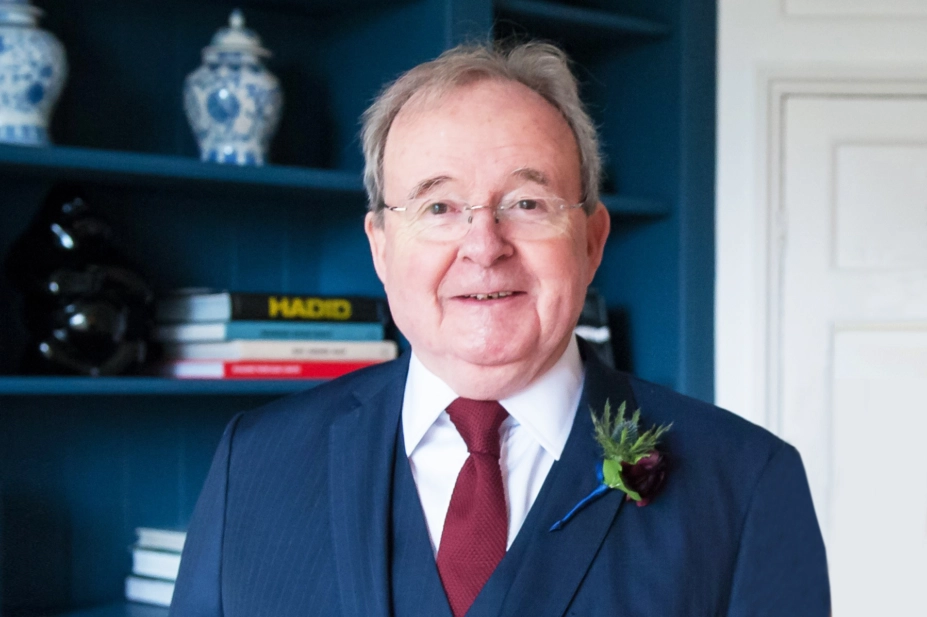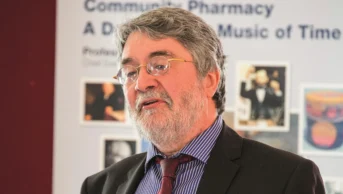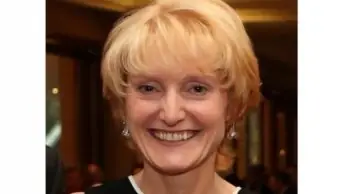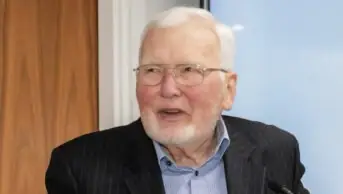
Courtesy of the Hylands family
Peter Hylands, a renowned pharmaceutical scientist who specialised in natural products research, has died aged 72 years.
A respected figure in the world of academic pharmacy, Hylands headed King’s College London (KCL)’s pharmacy department, as well as its Institute of Pharmaceutical Science. He was the first person to join the Royal Pharmaceutical Society (RPS) under the member category ‘pharmaceutical scientist’, which was introduced in 2011.
Hylands was born on 1 August 1946. In 1967, he graduated with a Bachelor’s degree in pharmacy from the University of London’s School of Pharmacy and he remained at the same university to complete his PhD, entitled ‘The synthesis of some unsaturated steroids of potential biological significance’.
After completing his PhD in 1970, Hylands was awarded a Royal Society European Fellowship to study triterpene biosynthesis at the University of Strasbourg, France, where he worked under the supervision of Guy Ourisson and Jean-Marie Lehn — the latter of whom went on to win a Nobel Prize in chemistry.
Hylands returned to the UK after two years, taking up a lecturership in pharmacognosy — the study of physical, chemical, biochemical and biological implications of natural products for medical or health purposes — at the Chelsea School of Pharmacy, which later merged with KCL in 1985.
During his time at Chelsea, Hylands published research into the actions and active ingredients of feverfew, a herbal medicine traditionally used for arthritis, fevers and migraines. Among his publications during this period was a study reported in The BMJ
, co-authored with his wife, Deborah, into the efficacy of feverfew for the prevention of migraine.
In 1988, Hylands became director of chemistry at Xenova, a biotechnology company based in Slough, Berkshire, where he remainedfor several years before moving to PhytoPharmaceuticals in San Carlos, California. Here, as research director, Hylands led the development of the first cell cultures of Taxus chinensis. From these cultures, high yields of the anticancer compound taxol were obtained. In 1997, Hylands returned to the UK and set up his own company, Oxford Natural Products, which pioneered the use of metabolomics in natural products research.
Hylands came back to academia in 2003, taking up a lectureship at KCL and soon being promoted to professor of pharmaceutical chemistry. In 2007, he was appointed head of the university pharmacy department. A few years later, in 2011, he and Clive Page went on to create the Institute of Pharmaceutical Science, and Hylands set up his own research group: The Centre for Natural Medicines Research.
Hylands had a deep interest in traditional Chinese medicine, working with colleagues at KCL’s Centre for Integrative Chinese Medicine and others as part of a project to investigate the constituents of Chinese medicines. As part of this, he led a large piece of work investigating the use of “omics” in Chinese medicine.
In addition to his academic and industrial work, Hylands used his expertise in natural products chemistry to advise on herbal medicines regulation. In 2013, he was appointed to the Herbal Medicines Advisory Committee of the Medicines and Healthcare products Regulatory Agency, and he sat on the British Pharmacopoeia Commission’s Expert Advisory Group on Herbal Medicinal Products. He also acted as consultant to the United Nations and the Commonwealth Science Council.
Speaking about how he was the first ‘pharmaceutical scientist’ member of the RPS, Hylands told The Pharmaceutical Journal
in 2014 that he had welcomed the move to include scientists within the Society’s membership. “I think the RPS was moving out of touch with pharmaceutical scientists, but it is now placing itself right at the centre of things.”
In 2013, Hylands became a Fellow of the RPS Faculty, as part of the first cohort of members to go through the Faculty process — an experience he found “both enlightening and surprising”. He went on to become a Faculty assessor and a member of the RPS’s Education Advisory Panel and Science and Research Board.
Gino Martini, chief scientist at the RPS and a former KCL colleague, said that as “the first pharmaceutical scientist member of the RPS and a member of the science and research board, Hyland’s support will be missed”.
Martini added that it had been “a privilege to have worked for Peter at KCL, and I will always remember his sage counsel”.
Hylands is survived by his wife, Deborah, and two children, Kate and Jonty.
You may also be interested in

David Taylor (1946–2025)

José Moss (1965–2025)
